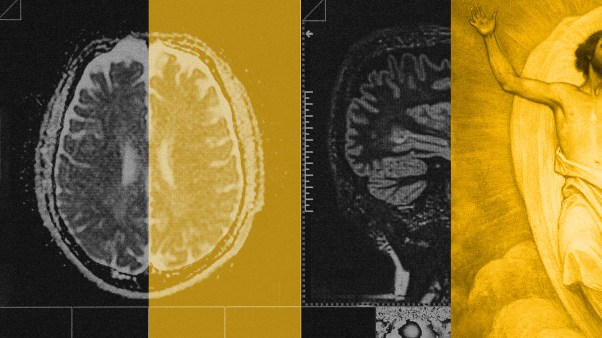My heart is not lifted up, my eyes are not raised too high; I do not occupy myself with things too great and too marvelous for me. But I have calmed and quieted my soul like a weaned child with its mother. Ps. 131
Not too long ago my husband informed me that during the night I sat up in bed and launched into the introduction to a new message. What surprised him most was that this sleepy sermon was coherent and came out in complete sentences! He said that his only regret was that he hadn't taken notes. (I was sorry too, because then I would have had my introduction!) After our laughter subsided, I was sobered by the realization that my mind was busy even when my body was resting. No wonder I woke up so tired some mornings.
The Psalmist's description of the mind at rest in God is powerful both in its simplicity and its seeming impossibility for the modern mind. The truth about me is that I seem to always be occupying myself with things too great and too marvelous for me. My mind is perpetually busy trying to control things, trying to figure things out, clinging to the latest idea, working endlessly to put everything into categories and boxes and systems of thought. Sometimes even God himself gets relegated to a category or a box in my mind rather than being free to be God in my life.
The irony is that the mind—as wonderful as it is and as tireless in its efforts—is so limited in what it can accomplish in the realm of the soul. The intellect can set the stage but it cannot provide the drama of true encounter and life-change—those things that my heart truly longs for. The heart of the spiritual journey for me recently has been to experience and learn to accept the limitations of the human mind and its efforts when it comes to the spiritual life. I have had to acknowledge that the wordiness, the emphasis on intellectual assent, the busyness that has characterized my life as an evangelical Christian has left me starving in some ways. Starving for mystery—to know God as one who is, in the end, far beyond what my mind can figure out. Starving for intimacy with God that changes me in the deeper places of my being rather than merely monitoring externals. Starving for rest—to know God beyond all that I think I'm supposed to do for him. Starving for quiet—to hear the sound of sheer silence that is the Presence of God himself.
Silence is the discipline that has helped me to drop beneath the superficiality of my mental constructs to that place of longing and desire, that place of reaching for what I do not have. It is in this wordless place that I turn all facets of myself (not just my mind) toward God and wait for his initiative in my life without taking so much responsibility for it. There is a kind of experiential knowing that comes in the silence that doesn't come in the words. The Hebrew word translated be still (Psalm 46:10) literally means let go of your grip. Let go of your grip on your human understanding. Cease striving at the level of human effort and open yourself to a whole different kind of knowing.
What I'm learning these days is that a lot of our God-talk is like the finger that points to the moon. The finger that points to the moon is not the moon; pointing to the moon, talking about the moon, involving ourselves in study and explanation about how the light of the moon is generated is not the same thing as sitting in the moonlight, letting the moonbeams fall around us illuminating what they will. It is not the same thing as noticing how everything is transformed in this numinous light. When we sit in the moonlight, we don't try to figure it out, explain it, or force it to be anything different than what it is. We just enjoy it.
It is the same with God. Our words and mental constructs about God are not the Reality itself. They only point to it. In silence we give in to the fact that our words can never contain God or adequately describe our experiences with God. We give our minds permission to just stop and rest themselves in the experience of the Reality itself. The willingness to be silent in God's presence results in quietness, confidence, and clarity beyond what the human mind can generate. This is a very deep kind of rest indeed.
Ruth Haley Barton is a teacher, spiritual director, and retreat leader. She is author of Invitation to Solitude and Silence: Experiencing God's Transforming Presence (InterVarsity Press, 2004), from which this article is excerpted. Ruth is co-founder of The Transforming Center, a leadership community that exists to guide Christian pastors and leaders in establishing spiritually transforming communities. For more information on The Transforming Center, go to www.thetransformingcenter.org or email Ruth at rhbarton@thetransformingcenter.org.









